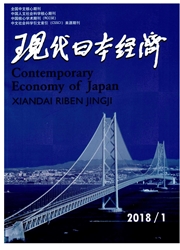

 中文摘要:
中文摘要:
第二次世界大战以后,日本企业开始采用内部控制型治理结构。之所以形成这种治理结构的根源在于日本企业的伦理属性决定了其企业的发展模式。从董事会治理伦理、股东治理伦理以及主银行治理伦理三个角度都可以体现出日本企业独特的治理特点。随着外部环境的不断变化,日本企业的治理结构和伦理观念在协同演进的过程中不断发展变化,两者的逻辑关系决定了日本企业治理结构的创新和发展方向。
 英文摘要:
英文摘要:
Corporate governance featured with internal control was widely adopted by Japanese firms since the end of world war Ⅱ. Business ethics of Japanese enterprises played a decisive role in the formation of this pattern of corporate governance. Characteristics reflecting such ethics can be observed in board of directors, shareholder relations as well as main bank system. In the ever changing external environments, the Japanese corporate governance co - evolves with the business ethics. The relationship between the two factors endogenously determines future trend of Japan's corporate governance.
 同期刊论文项目
同期刊论文项目
 同项目期刊论文
同项目期刊论文
 Building Core Competencies in a Turbulent Environment: An Exploratory Study of Firm Resources and Ca
Building Core Competencies in a Turbulent Environment: An Exploratory Study of Firm Resources and Ca Oversea Listing, Voluntary Governance and Corporate Performance--A Case Study Based on the ‘Sinopec’
Oversea Listing, Voluntary Governance and Corporate Performance--A Case Study Based on the ‘Sinopec’ A study of fairness judgments in China, Switzerland and Canada: Do culture, being a student, and gen
A study of fairness judgments in China, Switzerland and Canada: Do culture, being a student, and gen 期刊信息
期刊信息
